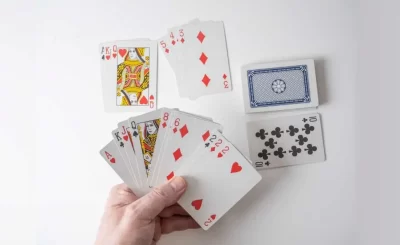Let’s be honest. We’re all looking for ways to keep our minds as nimble as our bodies as we get older. You know, that mental spark. While crossword puzzles and sudoku have their place, there’s a classic card game that offers a surprisingly powerful cognitive workout: Rummy.
It’s not just a game of luck. Far from it. Developing your rummy skills is like taking your brain to the gym. It’s a dynamic, engaging, and honestly, a downright fun way to maintain cognitive agility well into your golden years.
More Than Just a Game: The Cognitive Gym in Your Hands
Think of a game of Rummy as a complex mental dance. It requires you to hold several thoughts in your head at once, anticipate moves, and shift strategies on the fly. This isn’t just play; it’s active skill development for the mind.
The Core Mental Muscles Rummy Strengthens
So, what exactly is getting a workout? Well, quite a lot, actually.
- Working Memory: You have to remember which cards have been picked up and discarded. Who took what? What sequences are possible now? This constant juggling act is a top-tier exercise for your short-term memory.
- Strategic Planning: You’re not just playing the hand you’re dealt; you’re building a future hand. Do you go for a pure sequence first? Should you hold onto that Jack or throw it to avoid helping an opponent? This is forward-thinking in its purest form.
- Problem-Solving & Flexibility: Your opponent discards the very card you needed. The game plan shatters. Now what? Rummy forces you to constantly re-evaluate and adapt, building cognitive flexibility—a key to resilient thinking.
- Attention to Detail: A missed card can cost you the entire game. This sharpens your focus and observational skills, training your brain to notice the small things that make a big difference.
Getting Started: Your First Hand
Feeling a little rusty? Or maybe you’ve never played before? No problem. Here’s the deal: starting is the most important part. You don’t need to be a master from day one.
Begin with the basics. Understand the goal: forming valid sequences and sets. A pure sequence is your golden ticket—a run of three or more cards of the same suit without a joker. Get that, and you’re halfway home.
Start by playing against computer opponents online or with a patient friend. The pressure is low, and the learning curve is gentle. The goal here isn’t to win; it’s to understand the flow. To feel the rhythm of picking, discarding, and melding.
Leveling Up Your Rummy Skills for Maximum Brain Gain
Once you’re comfortable, that’s when the real cognitive training begins. This is where you move from simply playing the game to actively developing your rummy strategy. And that’s where the big mental rewards are.
Advanced Tactics for Cognitive Agility
| Tactic | How It Helps Your Brain |
| Card Counting & Tracking | Forces you to use working memory and probability calculation, keeping your mind actively engaged in deduction. |
| Bluffing with Discards | Engages social cognition and strategic thinking. You have to think about what your opponent thinks you have. |
| Calculating Probability | What are the odds the next card will help me? This is practical, real-world math that keeps analytical skills sharp. |
| Adapting to Open & Closed Deck Choices | Every choice is a micro-decision, training your brain in rapid risk-assessment and consequence evaluation. |
Honestly, the beauty of these tactics is that they happen almost without you realizing it. You’re not thinking “I am now engaging my prefrontal cortex.” You’re just trying to outsmart your grandson. And in doing so, you’re building new neural pathways.
The Social Spark: Why Playing with Others Matters
We can’t talk about the benefits of rummy without mentioning the social element. Cognitive health isn’t just about solo brain teasers; it’s deeply connected to our social well-being.
Playing rummy with friends or family—whether around a physical table or through an online platform—combats loneliness and isolation. It creates laughter, conversation, and a sense of community. This social engagement is its own form of medicine, reducing stress and keeping your spirits high. A happy mind is an agile mind.
A Game for Life
In the end, developing your rummy skills is about more than just winning a hand. It’s about investing in your cognitive fitness through an activity you genuinely enjoy. It’s a sustainable practice. Unlike some brain-training apps that can feel like a chore, rummy offers a story, a challenge, and a connection with every deal.
So, the next time you sit down to play, remember you’re doing more than just arranging cards. You’re giving your brain a full and rich workout. You’re keeping it quick, adaptable, and sharp. And that’s a winning hand, no matter what the score says.







